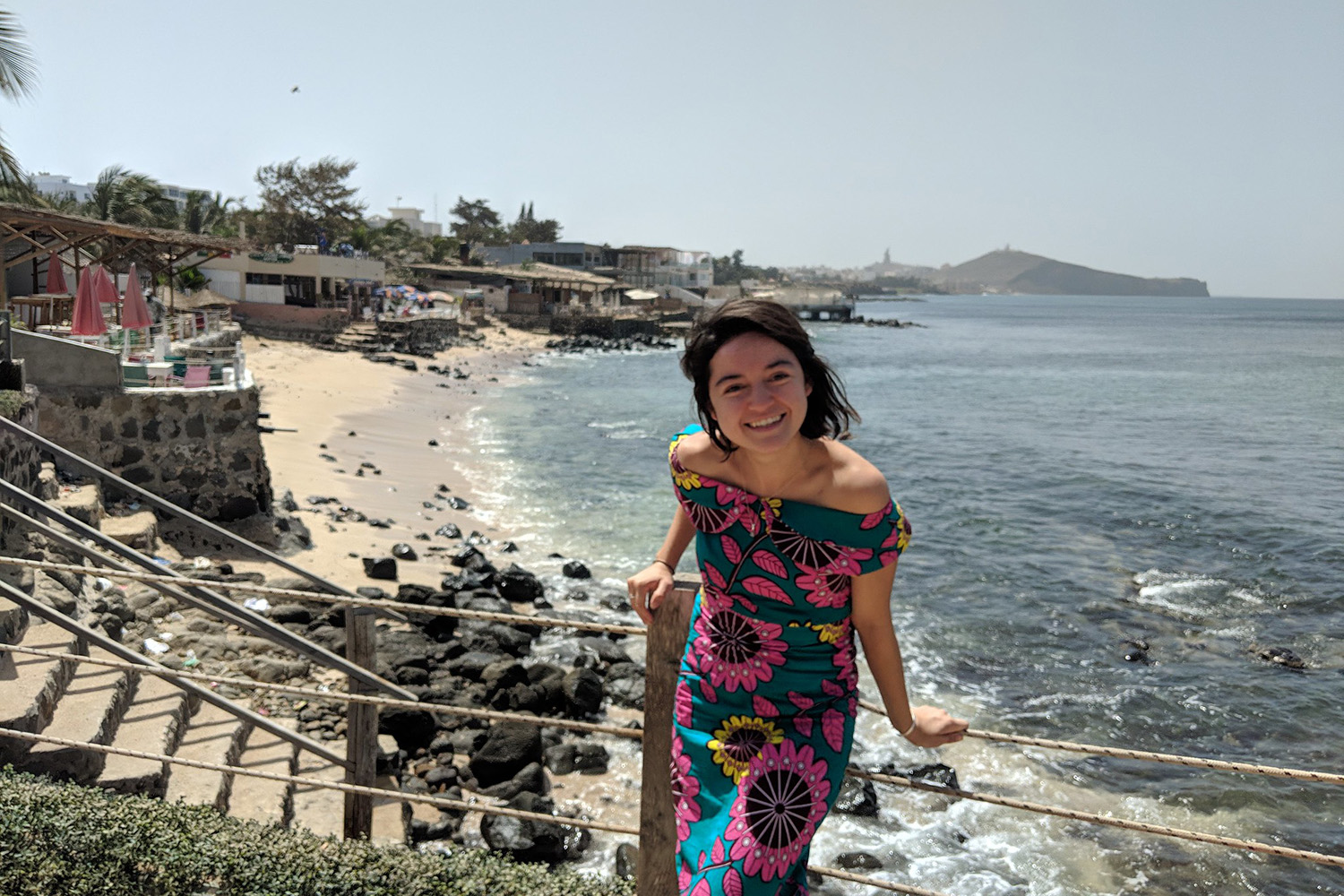While you may know a few dual majors, you are unlikely to find many students like Kelly Finn, who is pursuing three undergraduate degrees. Kelly first came to UConn as an applied and resource economics major in the Department of Agriculture and Resource Economics (ARE) major before adding finance and French to her studies. This additional coursework has not stopped her from being an active member of the UConn community, including working as a marketing intern in UConn Extension and serving as the director of alumni relations in the UConn Consulting Group. Read more about Kelly’s experiences as a UConn student.
What attracted you to the UConn College of Agriculture, Health and Natural Resources?
UConn has a secondary brand to its world-renowned basketball teams: its agricultural roots. As a land-grant university, UConn has been operating with deep emphasis in this realm of study for decades. What this means for UConn students is the opportunity to leverage a developed program of study with like-minded passionate peers. Additionally, the folks who manage the school are uniquely humble, interesting, and committed to their students.
What is your major, and why did you choose it?
While I am pursuing a triple degree in majors across three different colleges, the applied resource and economics major in CAHNR was my first. I was quickly allured as I learned it was a fusion of market theory in an environmental and economic development purview manifested into one major. For someone who has always been committed to creating positive change through ecological and developmental means, it had “Kelly: the aspiring world changer” written all over it.
Which one of your UConn activities, internships or jobs was the most memorable? Why?
Among the many UConn involvements that I’ve experienced, the one that was majorly formative in my professional and personal growth is the UConn Consulting Group. This group aims to harness the creative problem-solving abilities of highly motivated, curious leaders across all of UConn and apply it to business issues of real companies. The impact is multi-pronged on two levels: positive effects on several shareholders, including student members, club advisors, UConn alumni and UConn on a whole, and positive effects through the casework done for local and growing businesses. I remember learning how to dissect and analyze a business issue when I first joined as a freshman. Three years later with the group, I’ve grown from analyst to associate and most recently to project leader where I led five fellow students through a case for a client in New York City.
Name two other experiences that have enriched your studies.
Studying abroad and participating in internships. The former allowed me to immerse myself in a new culture and train in new languages. While I was abroad, I was a full-time student on the Boren Scholarship and also had the opportunity to complete a co-op with the Central Bank of West African States. The experience overall complemented my academic studies in applied and resource economics and my other majors, finance and French, as I was pushed to apply financial concepts to a country with a unique economy, all the while operating exclusively in French and Wolof.
The second experience of participating in internships has also been invaluable. My sophomore year I participated in the Farm Credit East Fellows Program, facilitated by ARE. My experience there in learning how to apply business fundamentals to agricultural clients led me to my subsequent internships at the central bank abroad, an investment banking internship in New York City and now an investing internship in Boston.
What has the biggest challenge in your UConn career?
The biggest challenge was the necessity to be very intentional about involvement. There are endless opportunities to get involved in hundreds of organizations on and off campus. From the get-go I was very enthusiastic about being a community builder at UConn. I became a fervent member of several teams and organizations. With changing priorities, interests and career pursuits, I was challenged to reevaluate my commitments at school to best maximize my limited bandwidth as a student leader. Practicing this skill of self-reflection and prioritization has been helpful as it has not only given me more capacity to grow in the things that I value the most, but also to apply this skill towards my personal and professional life.
When do you expect to graduate? What then?
Because I spent my junior year internationally on a fellowship, I am eligible for another year of schooling under my university scholarship. So, while I plan on “graduating” May 2020 with the rest of my original class, my last semester as a UConn student will be May 2021. I am hoping to use the two “extra” semesters to finish my supplementary degrees and study abroad in France.
Is there anything else you would like us to know about you?
I love learning about new cultures and discovering different traditions, foods, languages and places. I look forward to continuing my travel to explore those things and also experience beautiful outdoor areas like national parks and forests. It’s a dream of mine to finish section hiking the Appalachian Trail; I’ve completed a handful of states thus far!



